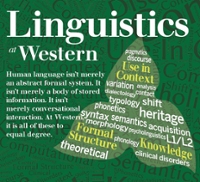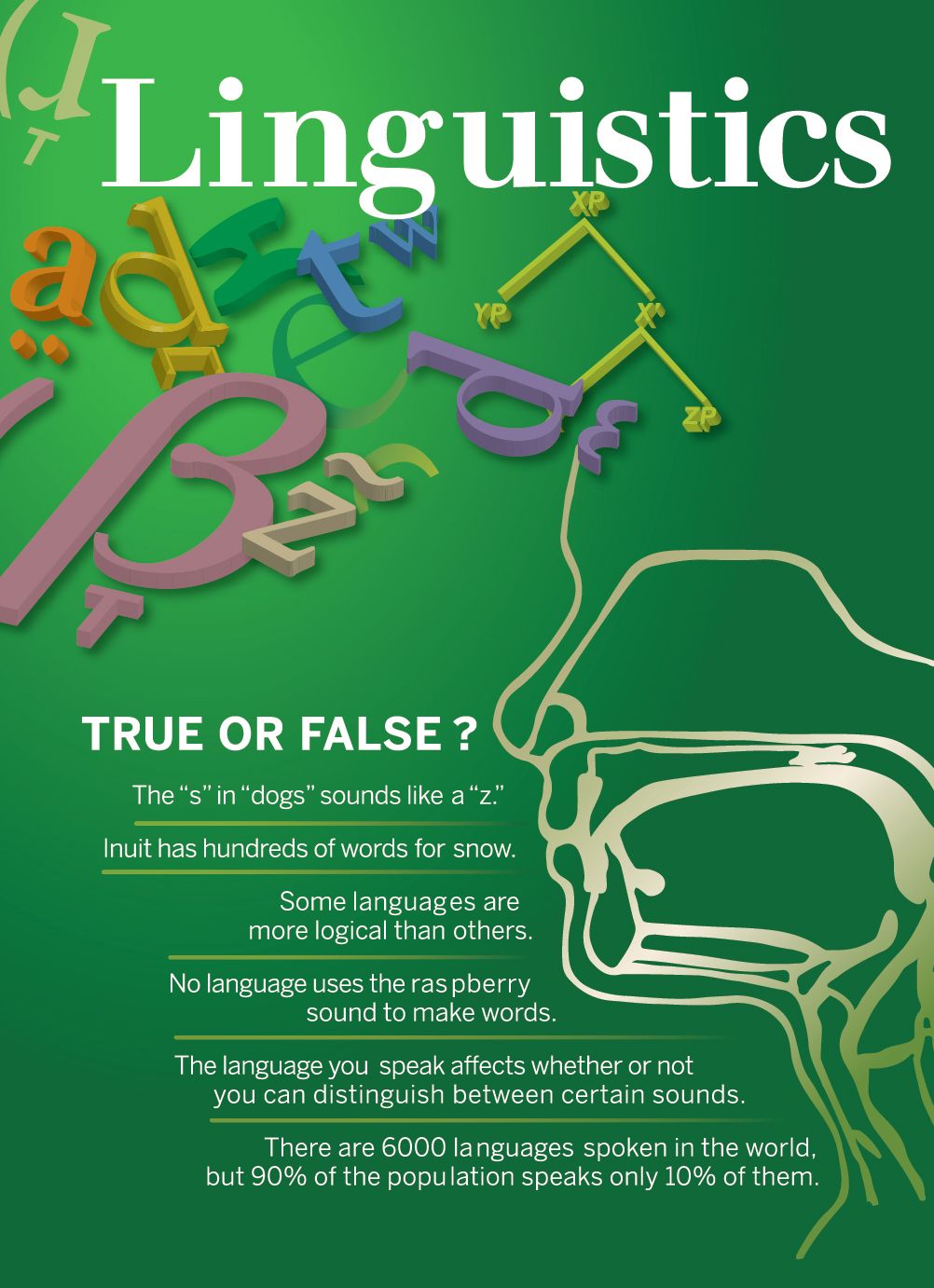Linguistics Outreach Event
 When:
When:
Thursday, November 6th, 2014 from 9:00 AM - 2:00 PM
Where
Social Science Center, Western University
In collaboration with Thames Valley District School Board for interested highschool students (see contact info below).
Program
8:30-
9:00 |
Registration
Social Science Center back lobby, by room 2257
|
9:00-
9:50 |
Plenary introduction
Social Science Center, room 1032
"Linguistics: not (just) what you think it is." (Tania Granadillo, David Heap, Shelley Taylor, Amanda L Stubley)
|
10:00-
10:45 |
First session
Social Science Center, room 1032
"Visualizing language sounds: you are your own instrument" (David Heap)
|
10:45-
11:30 |
Break
|
|
11:30-
12:20
&
12:30-
1:20
|
Concurrent Sessions
Social Science Center rooms 3227, 3219, 3220, 3221 AND 3207C
- "How many ways can you say 'Pass the cup?'" (Amanda Lynn Stubley).This simple question makes us think about word choice, gender and politeness and many other things. How is politeness expressed in English? How is it linked to our ideas of how men and women speak? Come see!
- "Tricky English" (Janis Chang). We don't consciously think about the way our own language works. These puzzles will make you ponder the English language in a different way, from how words go together to make idiomatic expressions to how different ways our mind tricks us into discovering meaning, come have fun with English.
- "Sound system puzzles" (David Heap). Languages have varying sounds and sound systems, so words from another language sometimes have to use different sounds, in unexpected ways. English "f" is replaced by "p" in Tagalog, while English "p" becomes "f" in Arabic. What we can learn from how loanwords are adapted can help us understand how different sound systems work, and even predict how new words will be borrowed.
- "Writing systems" (Tania Granadillo, Shelley Taylor). Your task is to figure out how a particular writing system works, and then use it to write out a given text, such as an ancient inscription. Some languages are written right to left or top to bottom, others do not use vowels, etc.
- "My hovercraft is full of eels: translation puzzles" (Ileana Paul). A problem includes a set of sentences in a foreign language and their translations into English. Your task is to learn as much as possible from these translations and then translate other given sentences to or from English. Note that the foreign language may have "tricky" structure and grammar. For example, some languages do not use articles or any equivalent of "to be." Be prepared to figure out these unusual features.
|
|
1:30-
2:00
|
Closing
Social Science Center, room 1032
|
For information about school participation please contact Mrs. Melissa Gollan-Wills at TVDSB.
 When:
When:




